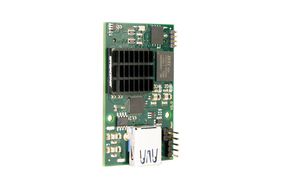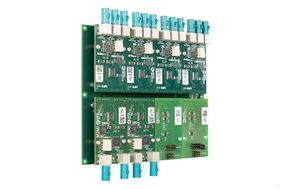Functional testing of USB3 interfaces
New extension module for SFX II ITM/8
GOEPEL electronic has developed a new module for testing USB3 interfaces in production and development. The ITMC USB3 Gen1 Host is another plug-in option for the interface test system SFX II ITM/8.
The SCANFLEX II Interface Tester Master (SFX II ITM/8) significantly improves test depth in the field of state-of-the-art bus interfaces. The system has eight independent and freely configurable ITMC slots for attaching ITM cards (ITMC). With the exchangeable ITM cards, the user can adapt the module to a concrete test scenario and test the properties of a wide variety of interfaces.
With the new ITMC USB3 Gen1 Host Module, the user can now also test standard USB3 Gen1 (5 GB/s) interfaces. The module supports both USB3 Gen1 Super Speed speed and conventional USB2 speeds (High Speed, Full Speed and Low Speed). The USB3 interface can be explicitly switched to USB2.0 mode to test these signals safely. In addition, a USB enumeration can be performed so that the various device information can be read and tested. This allows automated functional interface tests to be performed even in production environments. During the entire test sequence, the maximum permissible current consumption is monitored, so that errors can be reliably detected here as well. The various configuration options result in a significant improvement of test speed and test depth in the field of functional testing of USB3 Gen1 interfaces.
Especially for the production test, simple but functional interface tests are indispensable for testing the assembly during the manufacturing process. The combination of Boundary Scan test, emulation test and functional interface test enables all necessary test procedures to be carried out and evaluated during a test sequence already during the production test of the assembly with a test system. Additional test stations and systems are not necessary. By supporting up to 8 interface modules on one SCANFLEX II Interface Test Master, multiple UUTs or interfaces can be tested in parallel. The simple test program creation with ready-made macros allows the user to perform these tests and adapt them if necessary even without extensive knowledge of the USB interface. This is an advantage that should not be underestimated, especially for OEM assembly manufacturers. But also for use in development, the open software platform makes it very easy to write specific test programs and execute them immediately.
 联系我们
联系我们



